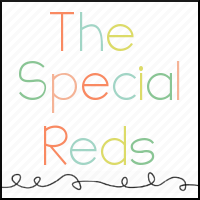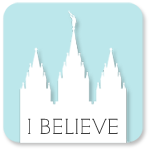So it made me think about other disabilities, and the barriers that are presented with each one. People who are confined to wheelchairs find a way to overcome their challenges and live despite the difficulties they face every day. People who are blind can use Braille to read. I think of Helen Keller and what she had to overcome with her blindness and deafness, and how much she accomplished despite those disabilities. Every time a child is born with a difficulty, or disability, parents work hard with doctors, specialists, therapists, whoever it takes, to help their child reach their full potential in this life--they want their child to go as far as he or she can and achieve the greatness that is possible. Every single person, despite his or her diagnosis, has potential to do great things, because despite the barriers, there are ways to get around them and reach new heights. This idea certainly applies to children on the autism spectrum, though I have found it is much, much harder to unlock that potential.
Let's consider the word "potential." It is defined as "latent qualities or abilities that may be developed and lead to future success or usefulness." Makes a lot of sense. Every person has qualities or abilities that can be developed into future success or usefulness. But what about that word "latent"? It means "existing but not yet developed or manifest; hidden; concealed." Wow. If that doesn't define special needs children, I don't know what does. Every child on the spectrum has hidden, concealed qualities that have not been discovered! How do we find those qualities? One of Julianna's past special education teachers once told me that being a sped teacher is quite like having a huge keyring full of different keys, and you use one key at a time, and if that doesn't work, you go to the next one, and the next one, until you see a little glimmer or hope or progress. It is true, finding the hidden qualities that can lead to success, or even just usefulness, as the definition mentions, is slow, painstaking, tiring work. Some things can take months, years, to master, or even show the slightest bit of progress!
So why do we do this? Why do we work so hard to see just the smallest bit of change? Why do therapists spend months, years, just to see a child learn to tie a shoe? Why do people who have been told they cannot walk spend months, years, in therapy, to learn anyway? Because it's worth it! It unlocks that potential, those qualities, that are hiding deep inside. It's kind of like peeling an onion, one layer at a time, crying as you go, but you don't stop because you know the more you peel away, the more you discover what wasn't there before. Every single child, no matter what the diagnosis, has a potential just waiting to be found.
And maybe that child's success won't be to win a Nobel prize, but it will be to conquer their fear of water, or speak in a loud voice in front of a group, or learn to put on a jacket, or to take a bath without assistance. To me, these things would be just as great as a Nobel prize, because they are some of the things we are working on with Julianna right now. To give up on these things that many kids and parents take for granted would mean I have given up on the possibility that Julianna has potential to live independently someday. I can't give up on her, I have to be there for her every step of the way. Her potential won't be the same as Blake's, or her best friend from school or church, but it will be what she is able to reach in this life. And once we've reached these goals, we will make even more, we will keep pushing her a little more to work even harder than she thinks she can.
The most trying thing about all of this, to me, is that I don't know what her potential is. I don't know how far she will go. All I can do is help her accomplish new tasks that are essential for every day living, and learn new skills and talents that help her feel important and special.
Children with autism have many, many barriers. But I believe these children are born into families with parents who will do anything to help their child climb these barriers and reach heights they never thought possible. The disabilities become abilities with every new skill learned, every goal reached, and to me, that is success.
On her 10th birthday.






















No comments:
Post a Comment